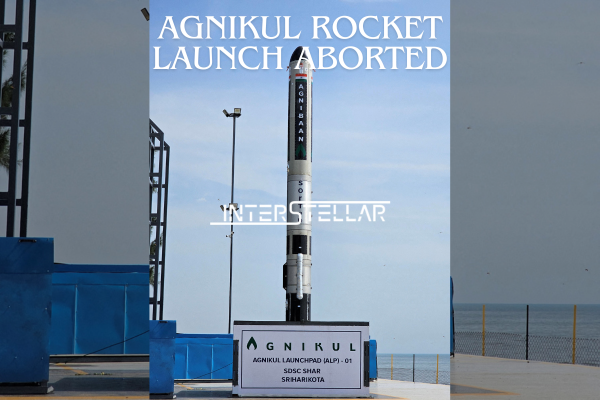India’s Agnikul Cosmos called off the test flight of its first rocket on Tuesday, just seconds before it was due to launch. This marks the fourth such cancellation in the past three months.
Repeated Delays
The rocket, India’s second privately built and the first to use a combination of gas and liquid fuel, has faced multiple technical issues leading to aborted launches. One previous attempt was cancelled only 90 seconds before lift-off.
The latest attempt was scheduled for 5:45 a.m. IST (0015 GMT) on Tuesday but was delayed due to a technical glitch in the countdown activities. A new lift-off time was set for 9:25 a.m. However, the launch was halted just five seconds before lift-off to check igniter performance and was ultimately called off.
Mission Objectives
The mission aimed to last two minutes, testing the new “semi-cryogenic” engine and 3D-printed parts. A successful launch would have marked a technological advancement for India, as the Indian Space Research Organisation (ISRO) has yet to successfully fly a semi-cryogenic engine. This engine type uses a mix of liquid and gas propellants.
Agnibaan Rocket Capabilities
Agnikul Cosmos’ Agnibaan rocket is a customisable, two-stage launch vehicle capable of carrying up to 300 kg (about 660 lb) of payload to orbits approximately 700 km (435 miles) in altitude. For comparison, SpaceX’s Falcon Heavy can lift up to 63,500 kg to low Earth orbit.
India’s Private Space Sector
India’s first privately developed rocket, by the company Skyroot, was successfully launched from ISRO’s site in 2022. Founded in 2017, Agnikul Cosmos operates the country’s first private launchpad and mission control centre, while ISRO manages all other launchpads.





